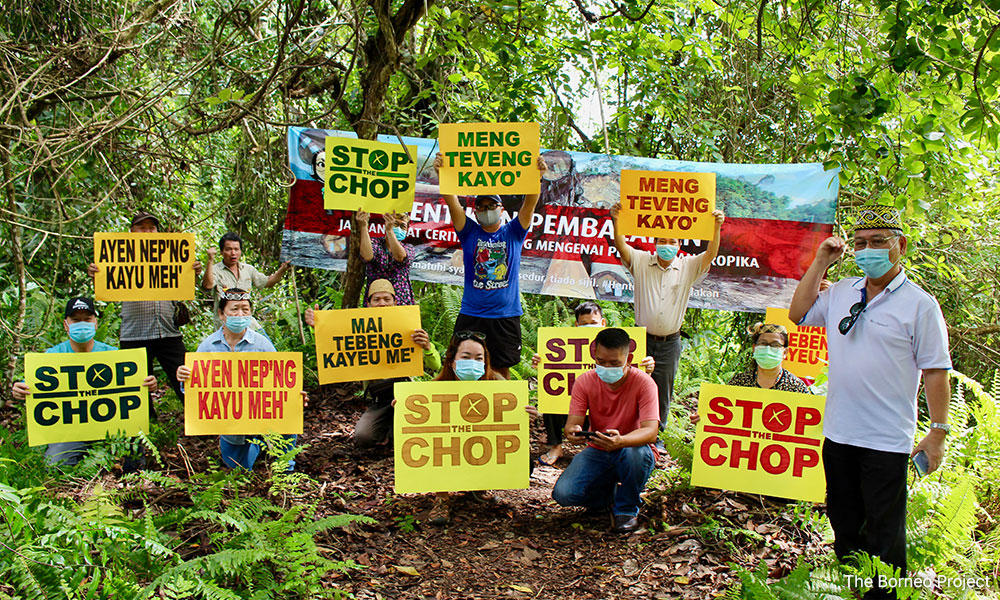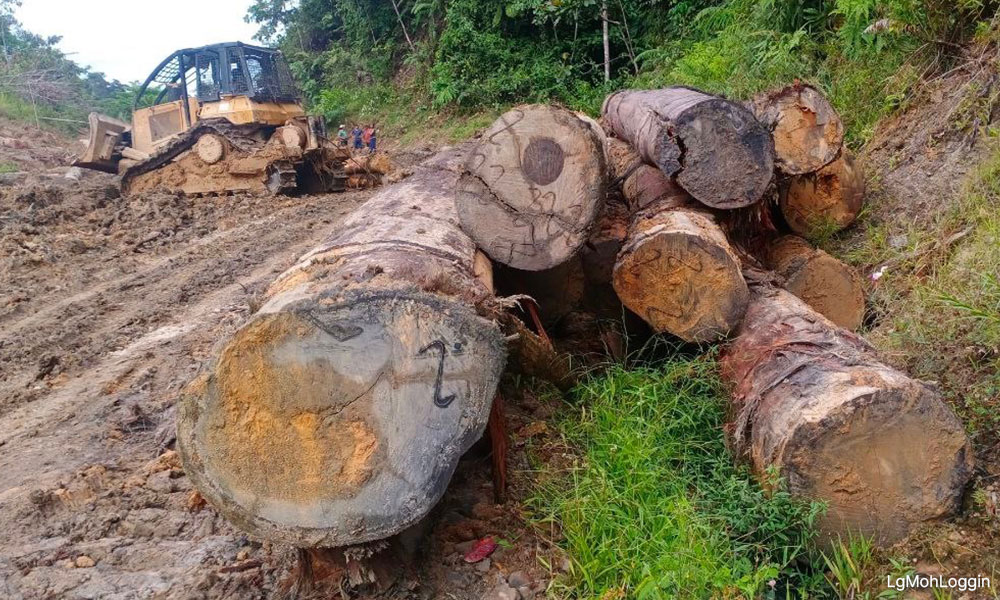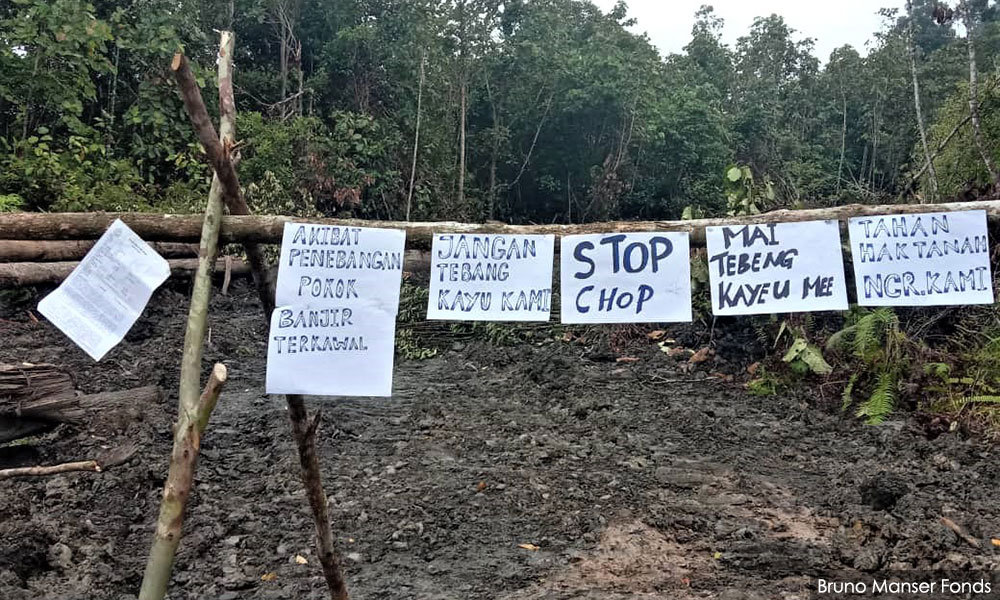Auditing body Sirim QAS International says there are no grounds for it to revoke a forest management unit (FMU) certification to a Sarawak timber company over alleged infractions.
This was in response to a report by The Borneo Project and Bruno Manser Funds (BMF), which urged international buyers to boycott Sarawak timber, particularly from Samling.
One of the reasons cited by the report is alleged native land disputes between Samling and the native community living in its Gerenai FMU.
Further, the report claimed that Samling had violated the terms of its sustainable timber certification issued by the Malaysian Timber Certification Scheme (MTCS) due to there being a sizeable plantation in the FMU exceeding the five percent limit set.
Responding to this in a statement on Wednesday, Sirim QAS - which is a MTCS certifying body - said the Gerenai FMU certification could not be revoked as there was "valid evidence" that the non-conformities were dealt with.

This, it said, was unlike what happened to Samling's Ravenscourt FMU, where certification was revoked.
"For the Ravenscourt case, the FMU faced challenges in resolving the nonconformities within the given time and that had led to the suspension and subsequent withdrawal of the certificate," the auditor said.
Previously, Samling told Malaysiakini that the issue of native land disputes at its FMUs had already been settled.
It also said that the plantation in the Gerenai FMU had been excised out of the area certified under the MTCS.
Sirim's full response to The Borneo Project and BMF report is as follows.
The questions in the press release were not those sent by Malaysiakini to Sirim when seeking their response to the report.
1. What are your general reactions to the report?
The report is a compilation of persistent allegations directed towards the Forest Management Certification program managed by the Malaysian Timber Certification Council (MTCC), the scheme owner, and outlines how Sirim QAS International, serving as the Certification Body (CB), has managed this scheme.
Both the CB and scheme owner, MTCC, have previously addressed these allegations on multiple occasions.
Without prejudice to Samling, it's important to note that in offering the Malaysian Timber Certification Scheme (MTCS) to clients, Sirim QAS adheres strictly to accredited procedures, ensuring assessments and decision-making are conducted impartially and without bias.
2. Do you think that the MTCS requires updates and changes to be transparent and better hold timber companies accountable, as suggested by the report?
If so, what kind of changes should be made to the MTCS system?
Sirim QAS does not hold the authority to represent MTCC regarding matters concerning MTCS.
However, subsequent to subscribing to the PEFC-endorsed scheme and receiving recognition as a CB through accreditation by the Department Standard of Malaysia, MTCS has been dynamically reviewing its scheme for continual improvement.

In addition to the review, CB and MTCC collaboratively strive to establish a mutual understanding of operating the scheme in the spirit of managing forest resources transparently and effectively.
3. The report suggested that MTCC does not yet have a guarantee that its standards are being upheld.
Do you agree with this statement, and why or why not?
Pursuant to item 2, the MTCS, developed by MTCC, has been utilized by Certification Bodies (CBs) for more than 10 years. Its endorsement by PEFC has solidified its position as the most credible and reputable certification scheme for forest management currently available in the country.
Since its introduction, the MTCS has consistently proven effective in managing both natural and plantation forests across Peninsula Malaysia, Sabah and Sarawak, despite variations in regulations among the states.
The conduct of open consultations with NGOs, communities and other stakeholders, including evaluation of customer complaints and media feedback every year or during each annual surveillance audit is a testimony that all critical aspects of forest certification are being considered, hence signifies that MTCC is operating the scheme with credentials.
4. The report also suggested that Sirim does not yet have a threshold for when companies have enough unrepaired non-conformities and should have their certification revoked.
What do you think of this claim?
MTCS is a management system certification, which means the concept of plan, do, check and action (PDCA) is prevalent as compared to immediate imposition of penalty upon failure to fulfil certain requirements.
The action of issuing non-conformities, followed by closure or escalating into suspension and finally withdrawal of certification is a process of managing the consequences which must be treated with objectivity to safeguard the interest of all stakeholders.

Therefore, the presence or absence of a threshold of enough unrepaired non-conformities is not the only condition to warrant suspension of certification.
Indeed, there were instances where FMU certificates were withdrawn due to non-responding to non-conformity within a given timeframe.
5. There were several accounts in this report about instances of Indigenous communities trying to report issues with encroachment from Samling, as well as excessive clearing in the Sungai Moh Wildlife Sanctuary and part of Gerenai FMU that has been deemed an oil palm plantation.
Was Sirim aware of any of these issues?
These instances are examples of conventional logging practices that were commonly seen before the certification started. Sirim QAS as a CB for FMU is not endorsing such practices.
Therefore, allowing certification services to FMU would enable the CB to enlighten the interest of all stakeholders (ie through a consultation process including Free, Prior and Informed Consent before any operation) and thus prevent the encroachment from continuing.
6. One of the report's first recommendations is that Sirim also revoke the certification for the Gerenai FMU, as it did for the Ravenscourt FMU. What do you think of this recommendation?
So far, do you believe the non-conformities at Gerenai FMU are comparable with those at Ravenscourt?
Sirim QAS has no grounds to revoke the certification awarded to Gerenai FMU, as there was valid evidence presented to close the non-conformities. As for the Ravenscourt case, the FMU faced challenges in resolving the nonconformities within the given time and that led to the suspension and subsequent withdrawal of the certificate.
7. Following the decision to revoke the Ravenscourt FMU, has Sirim made any internal evaluations of its process of accountability for logging companies and transparency over its decisions?
If so, what kind of evaluations has Sirim made?
The decision to withdraw Ravenscourt's certification status was made against the existing procedures.
This procedure has been in existence and subjected to accreditation audit on a regular basis, hence, there is no necessity to perform internal evaluations as suggested. - Mkini




No comments:
Post a Comment
Note: Only a member of this blog may post a comment.